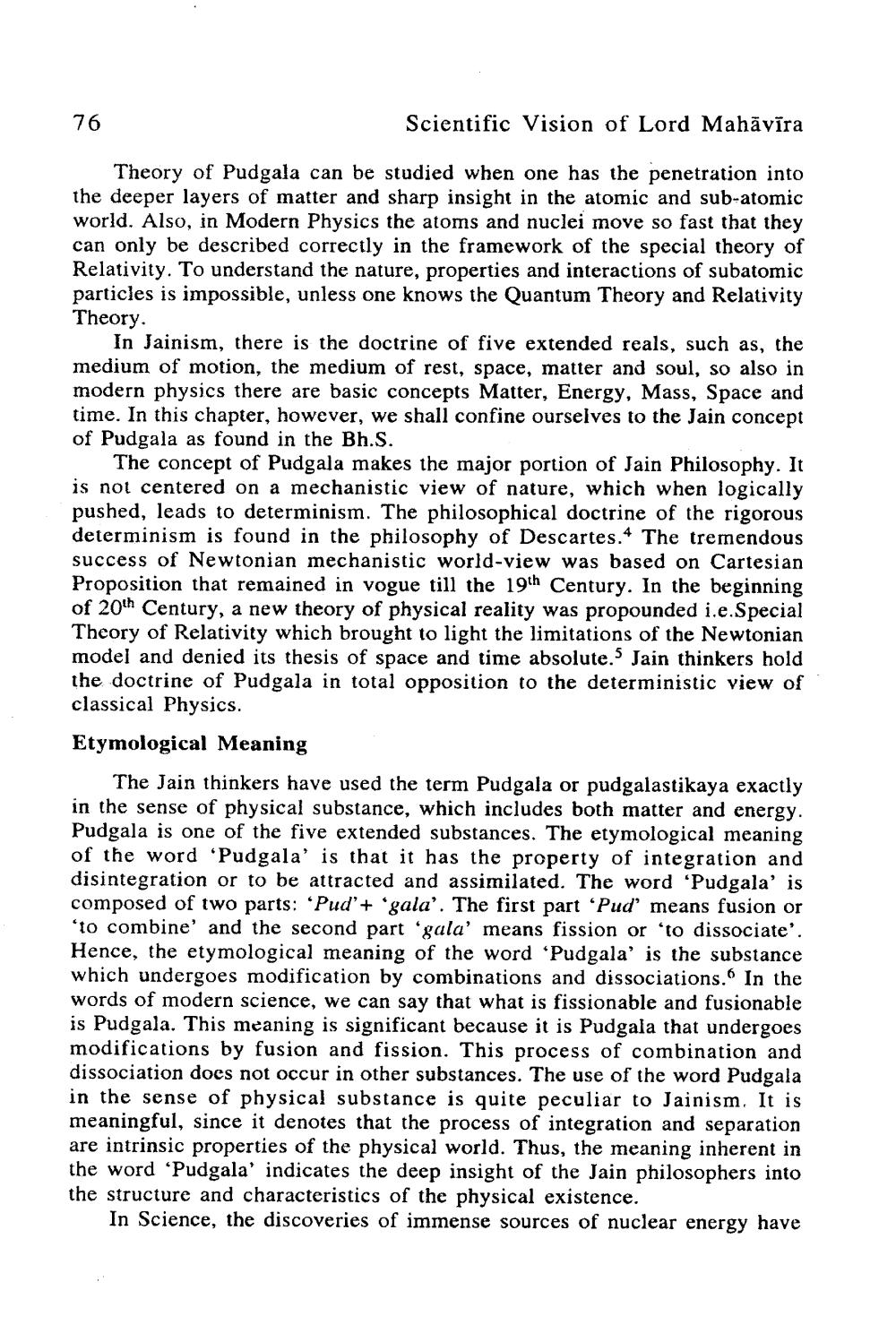________________
76
Scientific Vision of Lord Mahävīra
Theory of Pudgala can be studied when one has the penetration into the deeper layers of matter and sharp insight in the atomic and sub-atomic world. Also, in Modern Physics the atoms and nuclei move so fast that they can only be described correctly in the framework of the special theory of Relativity. To understand the nature, properties and interactions of subatomic particles is impossible, unless one knows the Quantum Theory and Relativity Theory.
In Jainism, there is the doctrine of five extended reals, such as, the medium of motion, the medium of rest, space, matter and soul, so also in modern physics there are basic concepts Matter, Energy, Mass, Space and time. In this chapter, however, we shall confine ourselves to the Jain concept of Pudgala as found in the Bh.S.
The concept of Pudgala makes the major portion of Jain Philosophy. It is not centered on a mechanistic view of nature, which when logically pushed, leads to determinism. The philosophical doctrine of the rigorous determinism is found in the philosophy of Descartes.4 The tremendous success of Newtonian mechanistic world-view was based on Cartesian Proposition that remained in vogue till the 19th Century. In the beginning of 20th Century, a new theory of physical reality was propounded i.e.Special Theory of Relativity which brought to light the limitations of the Newtonian model and denied its thesis of space and time absolute.5 Jain thinkers hold the doctrine of Pudgala in total opposition to the deterministic view of classical Physics.
Etymological Meaning
The Jain thinkers have used the term Pudgala or pudgalastikaya exactly in the sense of physical substance, which includes both matter and energy. Pudgala is one of the five extended substances. The etymological meaning of the word 'Pudgala' is that it has the property of integration and disintegration or to be attracted and assimilated. The word 'Pudgala' is composed of two parts: 'Pud'+ 'gala'. The first part 'Pud' means fusion or 'to combine' and the second part 'gala' means fission or 'to dissociate'. Hence, the etymological meaning of the word 'Pudgala' is the substance which undergoes modification by combinations and dissociations." In the words of modern science, we can say that what is fissionable and fusionable is Pudgala. This meaning is significant because it is Pudgala that undergoes modifications by fusion and fission. This process of combination and dissociation does not occur in other substances. The use of the word Pudgala in the sense of physical substance is quite peculiar to Jainism. It is meaningful, since it denotes that the process of integration and separation are intrinsic properties of the physical world. Thus, the meaning inherent in the word 'Pudgala' indicates the deep insight of the Jain philosophers into the structure and characteristics of the physical existence.
In Science, the discoveries of immense sources of nuclear energy have




